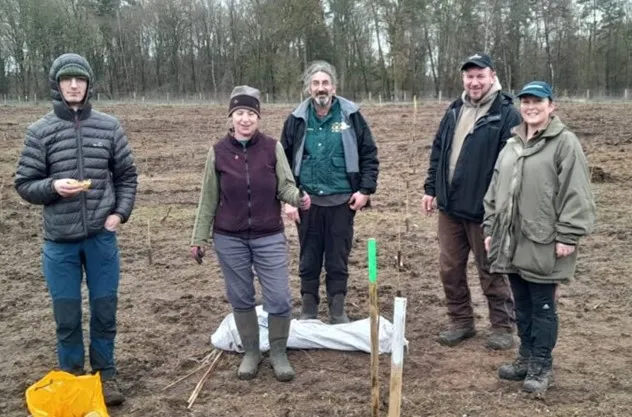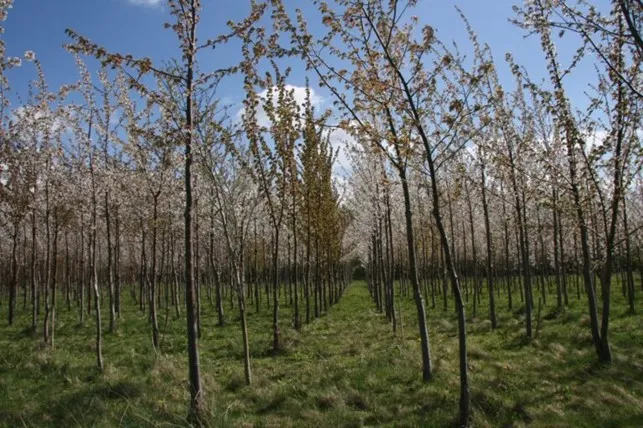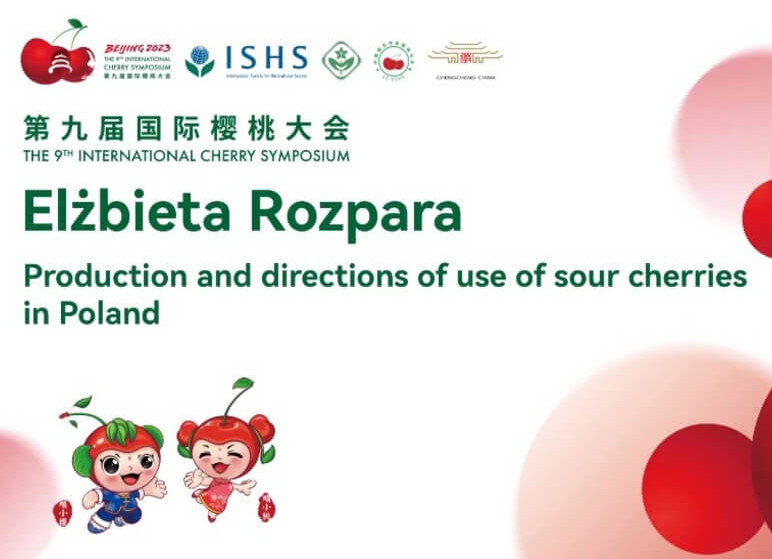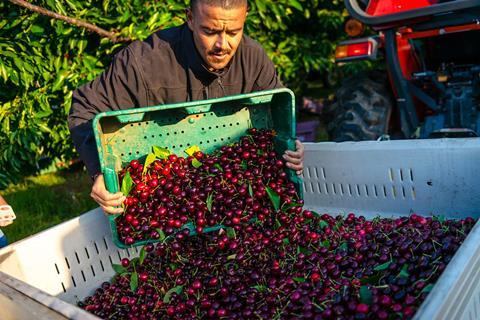
“Supersizing Broadleaves” is an innovative project investigating the source of seeds, nursery production, and tree establishment in the UK. We asked ourselves: "What happens when the best available seeds are taken, grown using the best practices for the specific species and site, and established in the best possible way?"
Future Trees Trust has worked over the last twenty years to identify outstanding examples (called plus trees) of oak, sycamore, birch, and cherry. We have gathered these plus trees into orchards of grafted clonal seed to produce qualified seeds for the industry. In 2023, we started progeny trials for these species to understand adaptive traits and evaluate family performance across various environments. By selecting the best trees, it should be possible to grow timber of superior quality in terms of form and vigor.
However, genetics accounts for only a small amount of the variation in timber growth. Variation occurs at every stage of the tree production process, whether it involves selecting the largest acorns, growing trees in cells rather than bare-root to reduce root damage, or having a more sheltered or fertile site. All these factors influence how a tree establishes itself.
This project aims to study some of these variables to help trees establish more quickly and thus reduce the need for weed control. So far, we have planted three full-factorial trials of pedunculate oak, white birch, and sycamore using qualified material and identified source material at a series of sites in northern England.
We expect that qualified material grown in cells and planted with effective weed control will establish faster than source-identified material without weed control and that, where nutrients are limited, an addition of NPK fertilizer will enhance growth.

Additionally, the quality of plants produced in terms of root architecture can significantly influence how quickly trees establish. We have conducted root architecture assessments on six of each species grown as bare-root and cell-grown trees, both qualified material and source-identified, and calculated root-to-shoot ratios on another six trees from each seed lot to provide baseline data on root structure.
FTT will also conduct some "destructive sampling" (removing material from a sample for research purposes) two years after planting to reassess root architecture and link it to performance. Therefore, we will destructively sample 288 trees from each trial site (six trees from each of the 48 treatments) to see how well the trees have performed.
In addition to starting research trials, four monographs (in-depth literature reviews) on the species studied, including wild cherry Prunus avium, have been written to help foresters decide which species to plant, which nursery production method to use, and what management interventions are necessary.
Four excellent monographs have now been completed by Andrew Leslie, formerly of the University of Cumbria and now at the Forest Research Silviculture Department. These documents are designed to inform professionals about best practices during the challenging tree establishment phase. This is a Tree Production Innovation Fund (TPIF) project supported by the English Forestry Commission.
Download the monograph on wild cherry here (in English)
Source: Future Trees Trust
Images: Future Trees Trust
Cherry Times - All rights reserved












